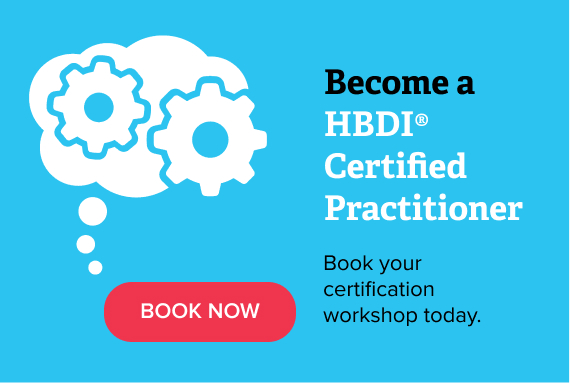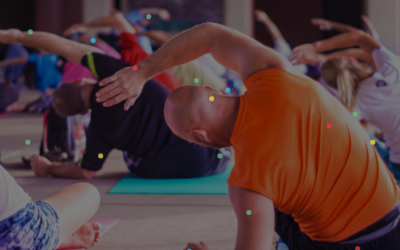Collaboration continues to become an integral part of business. Whether online or in person, in the office or working from home it is often misunderstanding or miscommunication that causes frustration within collaborative efforts. In fact, a recent Deloitte study...
A Whole Brain® approach to Executive leadership development
Some people think that when they reach the top of the corporate ladder, they no longer need to participate in team-building or leadership development activities. But these exercises are as valuable for Senior Executives as they are for office workers and lower...
A Whole Brain® approach to workplace wellbeing
Workplace wellbeing. It’s a term you hear a lot these days. Gone is the cut-throat corporate culture of the eighties and early nineties, where oppressive work environments made you feel like just another cog in the machine. Today’s leaders have recognised that...
The Most Important Talent Management Idea of 2020
Our bet for the biggest idea in management for 2020? Cognitive diversity. Cognitive diversity is a broad concept, but we define it as the differences in the thinking (i.e. cognition, perspective or information processing styles) that people use to process the world...
Who you need on your team: how to build the ideal team for your start-up
A business is only as strong as the people working in it. This is true of any business, but when it comes to a startup, the quality of your staff can have a huge impact on your chances of success. While startup founders and entrepreneurs are often idolised for their...
How to work with people you don’t like
You can spend upwards of 40 hours a week with your co-workers. Have you ever stopped to think that on any given weekday, you could be spending more time with your work family than your actual family? And unfortunately, you can’t choose who that work family is. As is...
How to use Whole Brain® Thinking to communicate more effectively with your customers
Customers. They’re the lifeblood of your business. Having good relationships with your customers is what drives your bottom line and helps you grow your business. Poor customer service, on the other hand, can cost your business big in lost customers and lost sales. ...
The importance of Whole Brain® Thinking in the age of Artificial Intelligence
From how we fly our planes to how we order our pizza, Artificial Intelligence (AI) and machine learning are transforming how humans experience their everyday lives. Across industries of all kinds - aviation, finance, healthcare, even the creative arts - AI and machine...
Beyond Gender: Here’s How To Create True Diversity in Your Boardroom
Earlier this year, New Zealand was called out for the lack of women holding senior positions in their 27 NZX-listed companies. The country lags behind the UK, US and Australia with 18% of listed companies having zero female directors. Research has shown that having...












